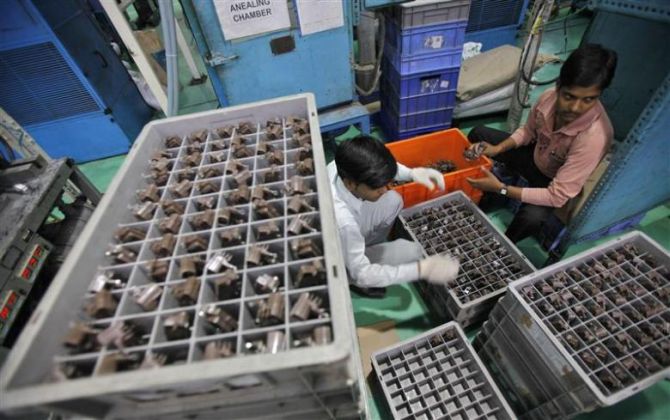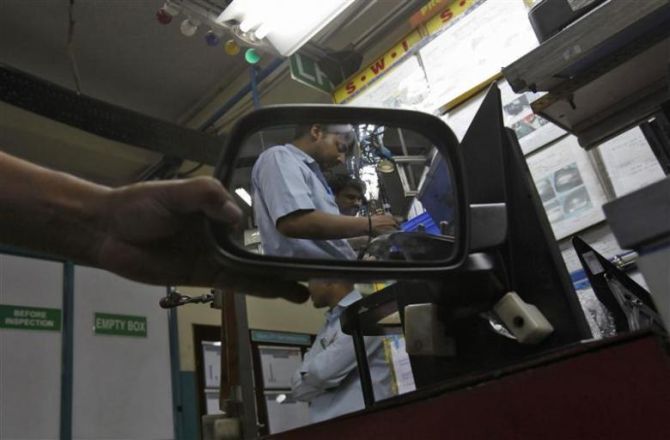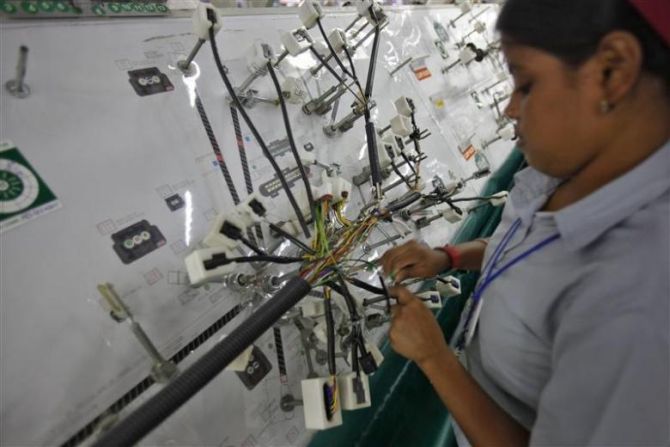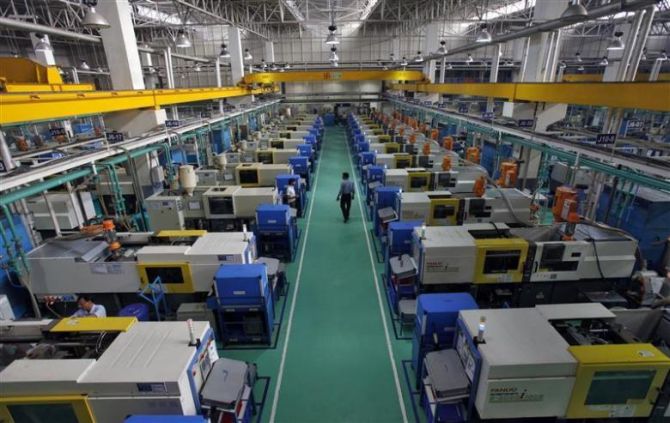Issues like high insurance cost and the announced price hike effective January could also weigh on sales in 2019. The only bright spot is the softening seen in fuel prices over the past month.

Abhishek Jain, CEO and managing director of auto component maker PPAP Automotive, had set an aggressive revenue growth target of 15 to 18 per cent for the 2018-19 financial year.
A strong growth in the first two quarters ensured a 15 per cent revenue jump in the first half of the year. But then sales went downhill.
The high-growth trend started to taper off after September.
Demand for all types of passenger vehicles - cars, vans and utility vehicles - saw a marginal decline in the second quarter when manufacturers build large inventory with dealerships to meet the festive season demand surge.
Car sales usually start to see a spike with the onset of Onam in September and the trend continues until Diwali.
For auto makers, this is a period of strong double-digit growth and, in turn, for component makers. But it was an unusual year.
The first setback came in the form of floods in Kerala, leading to lacklustre demand during Onam.
The industry was still hopeful of a late pick-up in demand but that didn’t happen either.
The sudden increase in fuel prices and an increase in insurance costs (by Rs 9,000 per car) together played spoiler.

The result was that even after Diwali, dealers could not normalise the large inventory build-up in anticipation of the festive demand.
Blocked inventory prompted dealers to offer big discounts and manufacturers were forced to cut production.
As a result, the industry’s growth in the third quarter is expected to remain flat.
Maruti Suzuki, the country’s biggest car maker, has seen its growth soften from a double-digit in the first quarter to 7.4 per cent in the April-November period of FY19.
The company’s management has indicated that a double-digit volume growth this year may not be possible.
Along with domestic demand, passenger vehicle exports have slowed too.
Exports account for about 15 per cent of the industry’s total sales and have declined over 3 per cent in the April-October period.
PPAP Automotive’s Jain, whose company generates all of its Rs 400 crore in revenue from passenger vehicles, has now slashed full year growth forecast to 10 per cent.
“There is no excitement in the car market. The third quarter is expected to be flat for us against an expectation of 7-8 per cent before,” Jain says.
Although auto part manufacturers are slightly better off than vehicle manufacturers, they too are feeling the strain.
Passenger vehicles form the largest segment in terms of revenue for the automobile industry, but automotive component makers have exposure to other segments such as two-wheelers and commercial vehicles that provide a cushion against potential shocks.

“There is pressure and one needs to work on reducing costs wherever possible since the ongoing expansion projects cannot be stopped,” says Nirmal K Minda, chairman and managing director at Minda Industries, which gets approximately half of its revenue from passenger vehicles and the rest from two-wheelers, where growth is still intact.
“If the growth in passenger vehicles had continued, we might have exceeded the growth target,” he adds.
The sluggish growth projections have an immediate impact on the contractual workforce.
Jain says there are no layoffs yet, but wherever contractual workers are quitting, a replacement is not being hired.
“There is a natural attrition of 8-10 per cent in the contractual workforce. This time we are not recruiting to fill this gap,” he adds. The company has 700-800 contractual workers.
Component makers are now hoping for a rebound in the fourth quarter. Sunjay Kapur, chief executive officer at Sona Group, says he is hoping for a strong fourth quarter rebound and therefore expects to meet the targets.
“The decline in passenger vehicles has been adequately compensated by the growth in commercial vehicles and tractors,” he adds.
However, the worry is that even commercial vehicle segment is beginning to see some headwinds.
In November, both Tata Motors and Ashok Leyland saw a dip in volume after several months of strong growth.

Tata Motors saw a five per cent decline in November commercial vehicle volume, which the company attributed to “low consumer sentiments as a result of liquidity tightening in the market, higher interest rates and rising fuel costs.”
It said all this resulted in muted demand post the festival period.
The overall prognosis for the industry remains tepid. Rating agencies and industry watchers have announced a downward revision in growth forecast of the passenger vehicle industry.
Rating agency Icra last week revised downwards its growth forecast for domestic passenger vehicles sales to 7-8 per cent for the ongoing fiscal, citing sluggish customer sentiments due to higher fuel cost and rising interest rate.
It had earlier given a guidance of 8-9 per cent.
Issues like high insurance cost and the announced price hike effective January could also weigh on sales.
The only bright spot is the softening seen in fuel prices over the past month.












 © 2025
© 2025